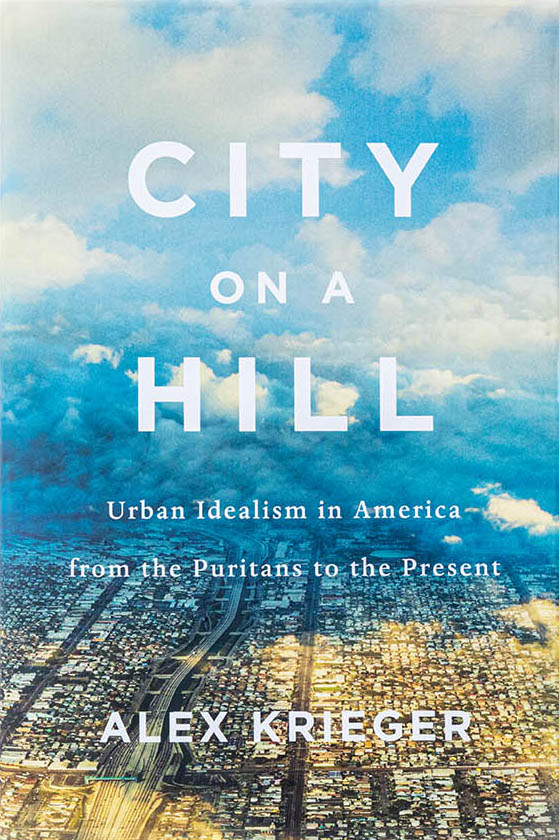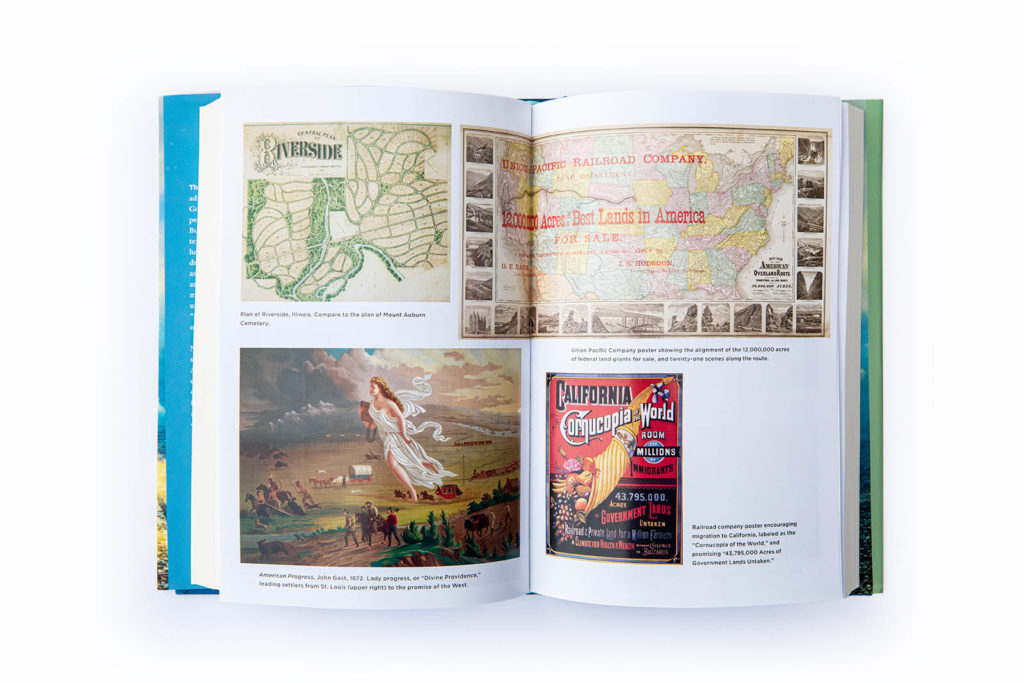 A beautifully illustrated book that comes out of more than three decades of teaching and writing about the American city, Alex Krieger’s City on a Hill: Urban Idealism in America from the Puritans to the Present (Harvard University Press, 2019) displays that rare integration of practicing architect and planner with scholar that Alex embodies. To a surprising and pleasurable degree, the chapters of City on a Hill capture the experience of sitting in on lectures that are stand-alone but interrelated gems where Alex “reads” a vast variety of American landscapes and cityscapes over four centuries.
A beautifully illustrated book that comes out of more than three decades of teaching and writing about the American city, Alex Krieger’s City on a Hill: Urban Idealism in America from the Puritans to the Present (Harvard University Press, 2019) displays that rare integration of practicing architect and planner with scholar that Alex embodies. To a surprising and pleasurable degree, the chapters of City on a Hill capture the experience of sitting in on lectures that are stand-alone but interrelated gems where Alex “reads” a vast variety of American landscapes and cityscapes over four centuries.
The book ranges widely from, for example, 18th-century Jeffersonian township grids and plans for the new national capital of Washington, DC, to 19th-century company towns and westward homesteading to 20th-century Las Vegas and the New Urbanist community of Celebration, Florida. Underlying these travels over time and space is a compelling argument. Despite the longstanding trope in American cultural history that the nation has always harbored a deep anti-urbanism, there has been an equally important—and perhaps even more powerful—drive for community that has made cities foundational to our society. Moreover, Alex suggests that the aspirational idealism that has shaped American thought and action over the centuries was often closely tied to urban development.
It is no accident that from the Puritans’ city on a hill in Boston to Chicago’s Columbian Exposition of 1893 to today’s “smart cities,” perfecting urbanity has been closely linked to imagining a more utopian future for the nation. Even where ambivalence about cities triumphed, such as with explosive suburbanization in the mid-20th century, optimism about future possibilities still characterized innovations in the built environment.
It is no accident that from the Puritans’ city on a hill in Boston to Chicago’s Columbian Exposition of 1893 to today’s ‘smart cities,’ perfecting urbanity has been closely linked to imagining a more utopian future for the nation.
on the relationship between urban development and the aspirational idealism that defines American life
My own work overlaps most significantly with Alex’s in his chapter “Misguided Renewal: The Urban Clearance Decades.” I published a book this fall titled Saving America’s Cities: Ed Logue and the Struggle to Renew Urban America in the Suburban Age. Our books share a commitment to historicize the urban renewal of American cities from the 1950s to the mid-1970s as a logical response by cities that were being severely challenged by a suburban boom, while they simultaneously struggled with stagnant economies, inadequate supplies of decent housing, roadways designed better for horses and trolleys than the rising number of cars, and popular dismissal as sites reflecting an antiquated past more than a modern future. Alex and I both acknowledge, however, the mistakes and miscalculations that urban renewers made in their enthusiasm for revitalizing American cities. While neither one of us excuses the problematic limitations of midcentury urban renewal, we both lament the withdrawal of federal dollars that once had helped cities build affordable housing and modernize infrastructure like mass transit.

The many tantalizing implications of City on a Hill and Saving America’s Cities will be discussed at a panel discussion on the evening of Tuesday, April 14th at the Harvard Graduate School of Design. We will be joined by Thomas Campanella, Paul Goldberger, Alissa Quart, and Dean Sarah Whiting—all of whom are similarly engaged in writing about cities—as we discuss the world of urban historical scholarship and pay tribute to Alex’s contributions to the GSD.
Lizabeth Cohen is the Howard Mumford Jones Professor of American Studies in the History Department and a Harvard University Distinguished Service Professor. Her most recent book, Saving America’s Cities: Ed Logue and the Struggle to Renew American Cities in the Suburban Age, was published by Farrar, Straus & Giroux in 2019.
Alex Krieger is Professor in Practice of Urban Design and Interim Chair of the Department of Urban Planning and Design at the Harvard Graduate School of Design. His most recent book, City on a Hill: Urban Idealism in America from the Puritans to the Present was published by Harvard University Press in 2019.